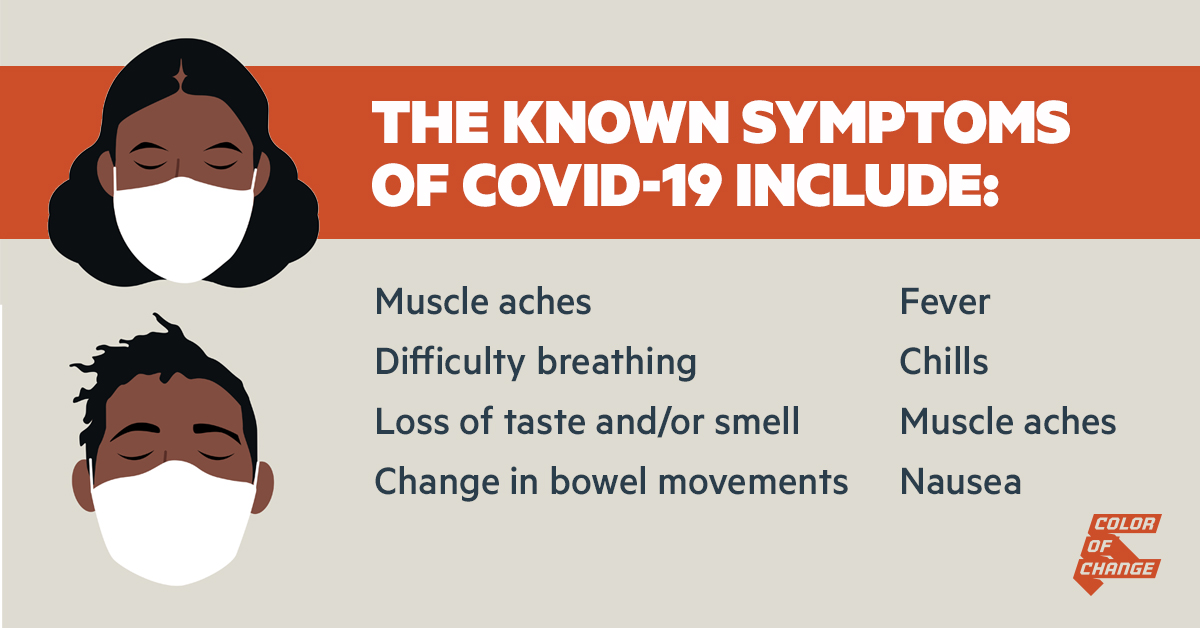The Black Patients' Guide to COVID-19By Dr. Ruth Arumala, in partnership with Color Of Change
On constant loops on every news outlet and social media feed is the looming risk of contracting the novel “Coronavirus” and the developing life-threatening COVID-19 disease. With no available vaccination and only experimental disease-fighting drugs available, the highly contagious virus has produced an unprecedented worldwide pandemic.
Unfortunately, in the United States there are recent reports from various metropolitan areas such as New Orleans and Chicago that the virus disproportionately results in severe disease and mortality in Black people. In order to adequately combat this disparity, Black Americans must be armed with accurate knowledge about the viral illness and ways to navigate the current healthcare environment.
Unfortunately, in the United States there are recent reports from various metropolitan areas such as New Orleans and Chicago that the virus disproportionately results in severe disease and mortality in Black people. In order to adequately combat this disparity, Black Americans must be armed with accurate knowledge about the viral illness and ways to navigate the current healthcare environment.
MYTHS VS. FACTS
MYTH: The Coronavirus does not affect Black People.
FACT: False. The Coronavirus is impacting Black Americans at higher rates and resulting in more severe disease. In Louisiana for example, Black Americans make up 32% of the population, yet comprise 70% of Coronavirus deaths. In Chicago, Black people are dying at six times the rate that of white people. Similar disparities are occurring all over the country.1
FACT: False. The Coronavirus is impacting Black Americans at higher rates and resulting in more severe disease. In Louisiana for example, Black Americans make up 32% of the population, yet comprise 70% of Coronavirus deaths. In Chicago, Black people are dying at six times the rate that of white people. Similar disparities are occurring all over the country.1
MYTH: The Coronavirus only affects older, sick individuals.
FACT: False. There have been reports of infants as young as four months old with severe symptoms of COVID-19. And one of the most heartbreaking U.S. deaths occurred when five year old, Skylar Herbert passed away in Detroit.2
MYTH: If I wear a mask, I do not have to practice social distancing.
FACT: False. In order to adequately protect yourself and others from the Coronavirus, you should continue to practice social distancing, while also adhering to the new CDC recommendations to wear masks that cover your mouth and nose.
FACT: False. There have been reports of infants as young as four months old with severe symptoms of COVID-19. And one of the most heartbreaking U.S. deaths occurred when five year old, Skylar Herbert passed away in Detroit.2
MYTH: If I wear a mask, I do not have to practice social distancing.
FACT: False. In order to adequately protect yourself and others from the Coronavirus, you should continue to practice social distancing, while also adhering to the new CDC recommendations to wear masks that cover your mouth and nose.
BEST PRACTICES WHEN YOU SUSPECT YOU OR YOUR LOVED ONE HAS COVID-19:
The known symptoms of COVID-19 include fever, chills, muscle aches, difficulty breathing, loss of taste and or smell, nausea, vomiting, and a change in bowel movements--particularly diarrhea. Although these can also be symptoms of the common cold, influenza infection or seasonal allergies, we need to proceed with caution during the peak or near peak of the coronavirus pandemic.


If you are experiencing these symptoms:
- Call your health provider.
- Be very specific about your symptoms.
- If there are any known contacts that have tested positive for the Coronavirus, immediately disclose that information to your provider.
- Include any underlying health conditions and what you do for a living--especially if you are public-facing, an essential worker, or have not been able to “shelter in place.”
- If you are experiencing persistent fevers and sustained shortness of breath, please present to the nearest emergency department. This indicates severe disease.